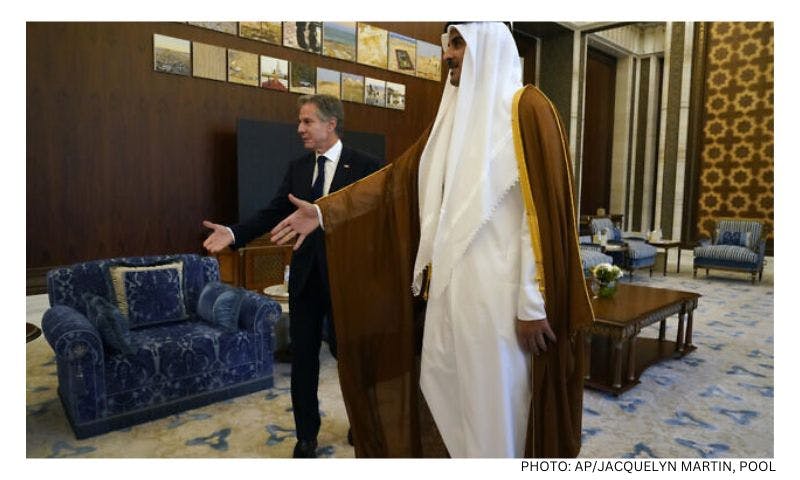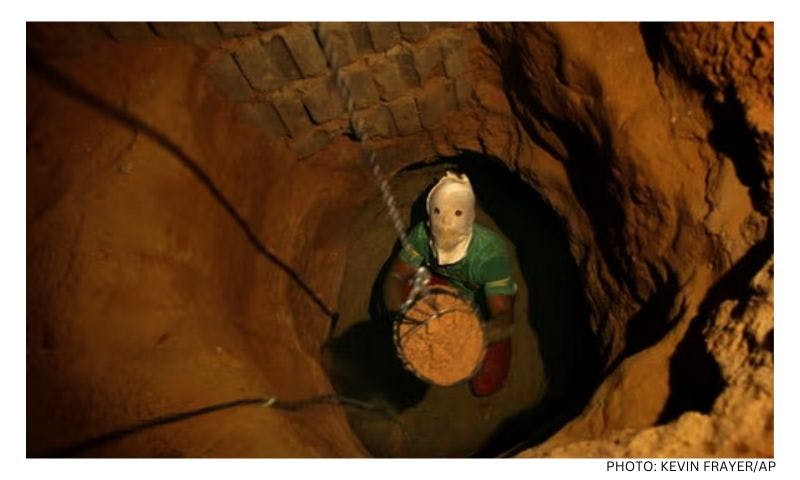Published: 14 June 2018
Last updated: 4 March 2024
Donald Trump's decision last month to withdraw from the Iran nuclear deal and restore sanctions on Iran has seen France, Britain and Germany scrambling to save the deal from the funeral pyre.
US National Security Adviser John Bolton remarked they should have seen it coming. “Now, I don’t know how to explain why people could miss what the President was saying", he told CNN's State of the Union program. "So, I think, at the moment, there’s some feeling in Europe that they’re really surprised we got out of it, really surprised at the re-imposition of strict sanctions.”
The feeling is one perhaps less of surprise - after all, Mr Trump decertified the the Joint Comprehensive Plan of Action (JCPOA), the official name of the agreement, back in October - than outright dismay and fury. Any commercial and diplomatic achievements in recent years with Iran risk unravelling, not to speak of Europe's fears the Islamic regime will now push ahead to develop nuclear weapons.
Ayatollah Ali Khamenei, Iran’s Supreme Leader, has already called on the country's Atomic Energy Organisation to make the necessary arrangements to increase its uranium enrichment capacity, albeit "within the framework of the JCPOA for the time being".
"The words uttered by some European states indicate that they expect the Iranian nation to both agree to comply with the nuclear deal undertakings and live under sanction", Ayatollah Khamenei said on June 4. "I tell the European states that have undigested thoughts in their minds that this dream of yours will not come true". Khamenei added that in the event of America curtailing Iran's oil sales, Europe should step in and compensate for loss of sales.
Israel's Prime Minister Benjamin Netanyahu arrived in Europe on the same day as Khamenei's announcement. Despite their different stance on the nuclear deal, on other matters, namely growing Iranian presence in the Middle East and particularly in Syria, Netanyahu spoke of "considerable agreement" with Europe. The E3 stuck to their guns when it came to the deal, but Mr Netanyhu returned home jubilant nonetheless.
For several weeks, therefore, the EU has somewhat ironically been working on an master plan to salvage President Obama's foreign policy legacy, one which would allow Iran to sell its oil and gas products and have access to international finance, whilst at the same time protecting EU companies that conduct business in the Islamic Republic, and looking at special financing vehicles in order to safeguard commerce.
The message is, ‘This is Rome, and Caesar has changed his mind. If we disobey, our villages will be burned to the ground'.”
One idea is to update an old blocking mechanism that would forbid EU companies from complying with US sanctions, and which would not recognise any court ruling that enforces American penalties. This was first developed - and last used - in 1996, in order to successfully apply pressure on US president Bill Clinton's Iran-Libya Sanctions Act and Cuba sanctions program.
As critics to the blocking mechanism have pointed out, however, the global finance system has taken on a more complex reality to that of the mid-90s. Even the vice president of the European Commission, Valdis Dombrovskis, has conceded that "the EU blocking regulation could be of limited effectiveness there, given the international nature of the banking system and especially the exposure of large systemic banks to the US financial system and US dollar transactions".
The European Investment Bank has also said it cannot afford to ignore the US sanctions, as it needs to maintain access to capital markets.
Arguably, the decision may already lie out of Europe's hands. As Israel's Prime Minister Benyamin Netanyahu gleefully pointed out on his whistle-stop tour to Europe to warn against Iran's entrenchment in Syria, "The weight of the American economy forces the issue ... you have to choose an economy that is about three per cent of the size of the American economy or you forgo an economy of $21 trillion GDP".
From insurance companies to shipping firms, a gaggle of foreign businesses has already announced their intention to pull out of the Iranian market in light of US sanctions.
As the chief executive of one foreign firm in Iran gloomily put it to The New York Times, “the message is, ‘This is Rome, and Caesar has changed his mind. If we disobey, our villages will be burned to the ground'.”
European firms that have signalled their exit include Total, the French oil company, which has a billion-dollar deal with Iran and Chinese firm CNCP to develop the South Paris 11 natural gas field (currently it has 50.1 percent stake in the project), and car manufacturer Peugeot, owned by PSA Group, which sold 445,000 cars in Iran last year. Both companies, however, are hoping to secure a waiver from the US that would allow them to continue doing business.
In such instances, something like the proposed EU blocking mechanism might be used as political leverage in order to help persuade the US to back down on sweeping penalties, and to accommodate individual cases.
In a world shifting from unipolarity to multipolarity, where America First translates as America Alone, this could be the time for European countries to pull together and present themselves as a unanimous block that pulls its weight in international affairs. Internal divisions within Europe - as Brexit, the election of populist governments in certain parts of the continent, and divided views on Russia remind us - make the fragility of any such position all too clear.
As Iranian politician Abbas Akhoundi wrote in the Financial Times on May 9, "We propose to have politically supported banking and trade formulas and to proceed with discussions with Brussels; both of these paths can be achieved by a firm political will of the EU".
The firmness of that political will is subject to grave doubts, for European pundits and Iranians alike.
After Mr Trump signalled his intention to withdraw from the agreement, French President Emmanuel Macron tweeted, “We will work collectively on a broader framework, covering nuclear activity, the post-2025 period, ballistic activity, and stability in the Middle East, notably Syria, Yemen, and Iraq".
US Secretary of State Mike Pompeo subsequently announced his intention to work with partners, including Europe, on a "bigger deal" to curb Iran's "malign" activities in the region. The timing of the US withdrawal from the JCPOA may very well coincide with a new low in American-EU relations - Trump's vow to impose high tariffs on steel and aluminium imports and a disastrous G7 meeting in Canada, which Germany's Die Welt newspaper called "the end of the West".
But for all its misgivings over the disintegration of the nuclear deal, it is unlikely Europe will choose Iran as the hill on which to die.
Photo: Angela Merkel, Theresa May and Emmanuel Macron (Youtube)




